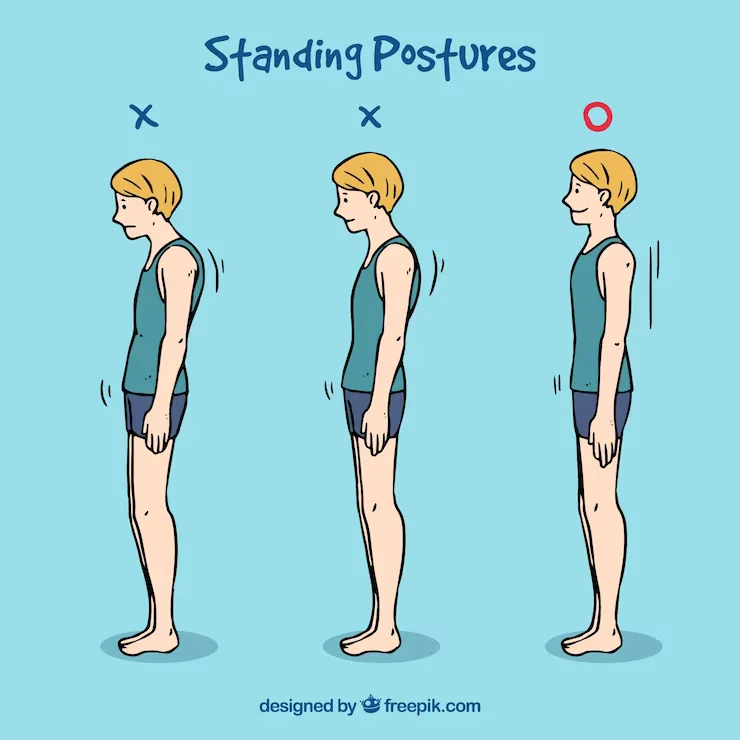What Small Thing Can Tell You a lot about a Person?
In the grand tapestry of life, it’s often the smallest threads that reveal the most about our intricate patterns. Over the years, I’ve come to realize that it’s not always the grand gestures or major life decisions that define us. Instead, it’s the subtle nuances, the seemingly insignificant habits and preferences that truly paint a picture of who we are. Whether it’s the way someone treats a waiter, the books they keep on their shelf, or even their choice of shoes, these small things can speak volumes about a person’s character, values, and personality. So, let’s embark on this fascinating journey of discovery, where we unravel the art of understanding a person through the little things.
How Fast Or Slow They Eat
I’ve noticed that those who eat slowly often have a knack for maintaining control and savoring life’s little pleasures. On the other hand, fast eaters I’ve met are usually driven, ambitious, and sometimes a bit impatient.
What They Eat And The Way They Eat It
I’ve found that those who enjoy trying new foods are often adventurous and willing to step out of their comfort zones. Those who separate the food on their plate tend to be disciplined and detail-oriented.
How Their Living Space Looks
From my experience, open-minded individuals often have a diverse collection of books, DVDs, and CDs at home. Their adventurous tastes and love for various art forms are reflected in their collections.
If They Consider Themselves A Thrill-Seeker
I’ve observed that self-proclaimed thrill-seekers are often extroverted, craving high levels of stimulation. This is why they seem to enjoy bustling places like clubs and concerts.
They Approach Art And Music In A More Critical Way
I’ve noticed that those who approach art and music in a more critical and contemplative way are often introverted. They tend to prefer complex music and films with strong character development
If Someone Is Drawn To Emotionally Turbulent Art, Such as Songs, Films
From my encounters, those drawn to emotionally turbulent art, such as certain songs, films, and literature, often score high on neuroticism. They can be sensitive, anxious, and easily upset. They might also be creatively inclined, preferring art that matches their current mood.
If They Are A Lover Of Figurative Art
I’ve found that lovers of figurative art are often highly conscientious individuals who value rules and order. They don’t necessarily seek intellectual engagement or emotional regulation from art. Instead, they see it as a means to enhance their living space aesthetics or connect with others who share their interests.
Nose
In my experience, people with a large nose tip are often meticulous financial planners, confident, self-reliant, and ambitious. Those with a neutral nose tip are usually mild-tempered and kind, while those with longer noses tend to be intuitive and action-oriented.
Cheeks
I’ve noticed that people with fuller cheeks are more prone to infections and illnesses and may take longer to recover. They also tend to be more susceptible to anxiety or depression.
Eyes
From my observations, a person with densely packed crypts (small clusters around the pupil) are often trustworthy and gentle. Those with tightly contracted crypts may lean towards the neurotic side. Interestingly, people with darker eye color seem to get intoxicated faster.
Treatment of Service Staff
The way a person interacts with service staff such as waitresses, cashiers, maids, and secretaries can often reveal their true nature. It’s disheartening to see people behaving rudely towards these workers, especially when they feel superior.
Gossiping
Pay attention to how they talk about others when they’re not present. How they discuss others behind their backs is likely how they’ll discuss you in your absence. If they flatter someone in person but express dislike once they’ve left, it’s a significant warning sign.
Respect For Women
For men, observing how they treat their mothers and sisters can provide insight into their respect for women. It can also indicate whether they’re overly dependent on their mothers.
Respect For Relationships
Assess their commitment to their relationship. Do they have a roving eye? Are they flirtatious? Do they cheat? If so, they might be the type who’s always seeking something better. You might be their focus today, but that could change tomorrow.
Treatment Of Animals And The Elderly
How they behave towards animals and elderly people, who may not be able to defend themselves, speaks volumes about their character. If they need to exert their “power” to feel good, it’s a definite red flag for me.
Clothing Choices
Have you ever pondered why brides traditionally wear white dresses, or why doctors are often seen in white coats? The color white is associated with joy, purity, and health, making it an apt choice for these roles. Conversely, black exudes power and authority, which is why you’ll often see managers donning black suits at work. The color of our clothes can subtly communicate our roles and intentions to others.
Facial Expressions
A consistent smile can reveal a lot about a person’s character. Beyond indicating happiness, a smile can also signal self-acceptance, which has a magnetic effect on others. It’s a non-verbal cue that communicates positivity and openness.
Posture
Maintaining a straight back is more than just good for your health; it’s a sign of confidence and power. Good posture can command respect and convey a sense of authority, making it an important aspect of non-verbal communication.
Voice
The tone and volume of one’s voice can also provide insights into their personality and emotions. A soft voice, often used by individuals when speaking to someone they’re fond of, can indicate vulnerability and submission. On the other hand, a loud voice can project power and authority, influencing the listener’s perception.
Hand Movements
The way we use our hands while speaking can significantly impact how others perceive us. For instance, if you’re at a job interview or talking to someone you’re interested in, keeping your hands out of your pockets can make you appear more confident and engaged. Conversely, crossing your arms can signal anger or rejection. It’s also advisable to keep your hands away from your mouth while speaking, as this is a common gesture among those who are not being entirely truthful. By being mindful of these non-verbal cues, we can better understand and influence how we are perceived by others.
Dental Hygiene
At the tender age of 11, I found myself puzzled by a dental mystery. My elder brother, despite his infrequent brushing habits, sported teeth that were as white as snow. In contrast, I, despite my diligent nightly brushing routine, couldn’t achieve the same level of whiteness. Intrigued, I decided to confront him.
“Even though I brush my teeth more often than you do, yours still look healthier than mine,” I pointed out.
With a nonchalant shrug, he revealed his secret, “Yeah, I brush them once a week, but when I do, I dedicate a good 7–10 minutes to it.” This revelation was a game-changer for my young mind (I never claimed to be a child prodigy). I decided to adopt his seemingly effective strategy for almost a year.

However, one fateful day, my mother pointed out that my breath was less than fresh and my teeth had taken on a yellowish hue. She insisted on inspecting my oral hygiene and was visibly horrified by what she saw. Two days later, I found myself in the dreaded dentist’s chair, enduring a painful dental procedure.
That not-so-fun dentist visit sparked an obsession with dental hygiene in me. Now, whenever I converse with people, my attention is instinctively drawn to their teeth.
I’ve come to realize that dental hygiene is a reflection of a person’s overall attitude towards self-care. If I encounter someone who appears well-groomed but has bad breath and unhealthy teeth, I can’t help but perceive them as lazy. It baffles me how they neglect such a crucial activity that requires a mere 5 minutes of their day but can prevent a multitude of long-term problems. This experience has taught me the importance of regular and thorough dental care, a lesson I carry with me to this day.
Fault: Do They Accept It When They Are Wrong?
Or do they project, blame shift, and deny responsibility? This here tells you how trustworthy and honest the person is.
How they treat others: How they treat less fortunate is a direct reflection of who they are. If they act superior to most, you have your answer.
Friends
If they have none, or many, pay attention to that. They are the sum of the five people they hang around most. If their friends are liars, and dishonest, there’s your answer.
Family
Listen to how they talk about their family, good or bad. Nobody’s family is perfect, if they paint their family as perfect, or try and make excuses for bad behaviors, well…..it will tell a lot if they are trustworthy and honest.
This Is A Sign Of Respect And Humility
He does not look down on anyone or treat them badly because of their job or status. And he is polite and courteous to everyone he meets. He appreciates the work and service of others. He is not arrogant or entitled.
How They Speak About People When They Aren’t Around
The way they talk about people behind their backs is the way they talk about you behind your back. Also, if someone fawns over someone to their face and then says “I hate her” when she walks away, HUGE red flag.
This Is a Sign Of Honesty And Integrity
He does not gossip or spread rumors about others. Also does not lie or pretend to like someone he doesn’t. And he is consistent and trustworthy in his words and actions. He is not two-faced or hypocritical.
Questions They Ask
Focus on questions people ask. Next time, when you are having conversation with people, focus on the questions they ask. It can tell a lot about their life experiences and thinking approach. Of course not to judge them. But, to know the person more.
Conclusion
In a nutshell, the small things about a person can indeed tell us a lot about their character, values, and personality. These seemingly insignificant details, from their eating habits to their choice of clothing, can provide profound insights into their nature. It’s a reminder that in the quest to understand others, we must pay attention not just to the grand gestures, but also to the subtle nuances. After all, it’s often in the smallest details that the true essence of a person is revealed. So, the next time you meet someone, remember to look beyond the obvious. You might just discover a whole new layer to their personality.











